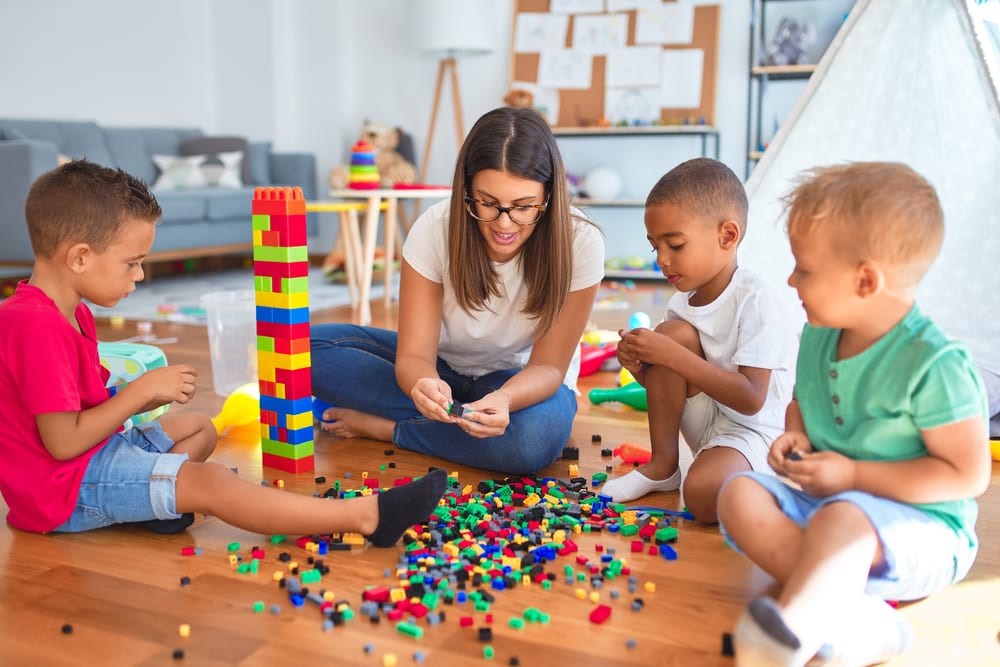
Play Therapy Benefits Children’s Healing
- Margaret Cox, MSSW, LMFT & CSW
- Grief Counseling
- Patients and Families
To be a child in this culture is to be vulnerable, and all too often invisible and unheard. It takes humility, patience, and compassion to be invited into a child’s emotional world. As adults, we have a great responsibility before us-to see, to hear, to feel and simply be with children, without an agenda present.
Some of my greatest lessons come from my smallest clients. One such client said it best, “I like you just being here with me.” It is an honor to hold this sacred space for children to become leaders in their own healing process. One way to be present and encourage natural healing is with play therapy.
“In the play therapy experience, toys are like the child’s words, and play is the child’s language.”
-Gary Landreth, Child Center Play Therapy Creator
Play and other forms of expressive based therapies honor every child’s natural capacity toward healing and growth and enables children to become leaders in the healing process. With the guidance of a skilled counselor who has clinical supervision and training in these therapies, children:
- Experience acceptance, trust, and understanding
- Strengthen parent-child relationship
- Learn and practice self-regulation skills
- Identify and express feeling and needs
- Work through and resolve inner conflict
- Utilize problem-solving skills
- Develop decision-making skills
- Experience self-responsibility with age-appropriate choices
- Learn limits and natural consequences
- Experience and develop positive self-concept
- Expand and deepen self-worth
- Develop internal locus of control
Most children and adolescents benefit from both directive and non-directive play and expressive therapies. Chronological age, developmental level, presenting issues, trauma history, goals of therapy, client preferences, and stage of treatment process all help to inform specific therapeutic modalities utilized by your therapist.
Child-centered play therapy is an evidence based, developmentally responsive therapy for children ages 3-10, and prioritizes a “being with” attitude between the child, parent, and therapist. A ‘being with’ attitude conveys the following message to the child, “I am here, I hear you, I understand, and I care.” The use of therapeutic limit setting creates a structured environment to play therapy sessions where children learn limits for acceptable and unacceptance behaviors by acknowledging feelings, wishes, and wants, communicating limits, and targeting acceptable alternatives, and age appropriate choices. These skills, concepts, and most importantly the ‘being with’ attitude is also modeled and practiced with parents and caregivers, so they too are given the space and freedom to effectively become therapeutic agents of change in their child’s life.
Play therapy also provides children the experience of self-responsibility. “Children who are provided opportunities to learn decision making and self-responsibility become self-directed, self-motivated, and feel a sense of control in their lives” (Landreth). This is a growth process that helps children learn how to emotionally respond to future problems more effectively, and effectively meet developmental milestones.
Often, words are limited with the presence of intense emotions (e.g. big feelings sometimes associated with grief), and frequently much more can be effectively said through non-verbal means of expression. More specifically, children express their thoughts and feelings through their play. In fact, children’s play is critical to healthy development. It provides children the freedom they need to express themselves in an authentic way and allows children the freedom and safety to be who they are. If you want to understand a child’s emotional world, then simply observe their play, and they will teach you what you need to know.
Through working collaboratively with families, I have learned that the most effective therapeutic experiences are built upon safety, positive attunement, authentic connection, and collaboration among family members. Therapists use caution and care when starting to build relationships with clients and families, and strongly believe in practicing a trauma-informed approach wherein the therapeutic relationship serves as the vehicle for healing and promoting growth. Clients are my greatest teachers, and play therapy approaches therapy with the compassion it needs.
If you are interested in counseling for your child, reach out to the Hosparus Health Grief Counseling Center for information, 502-456-5451, or online here.
Read More Articles About Grief Therapy
*Margaret is a former staff member of Hosparus Health.